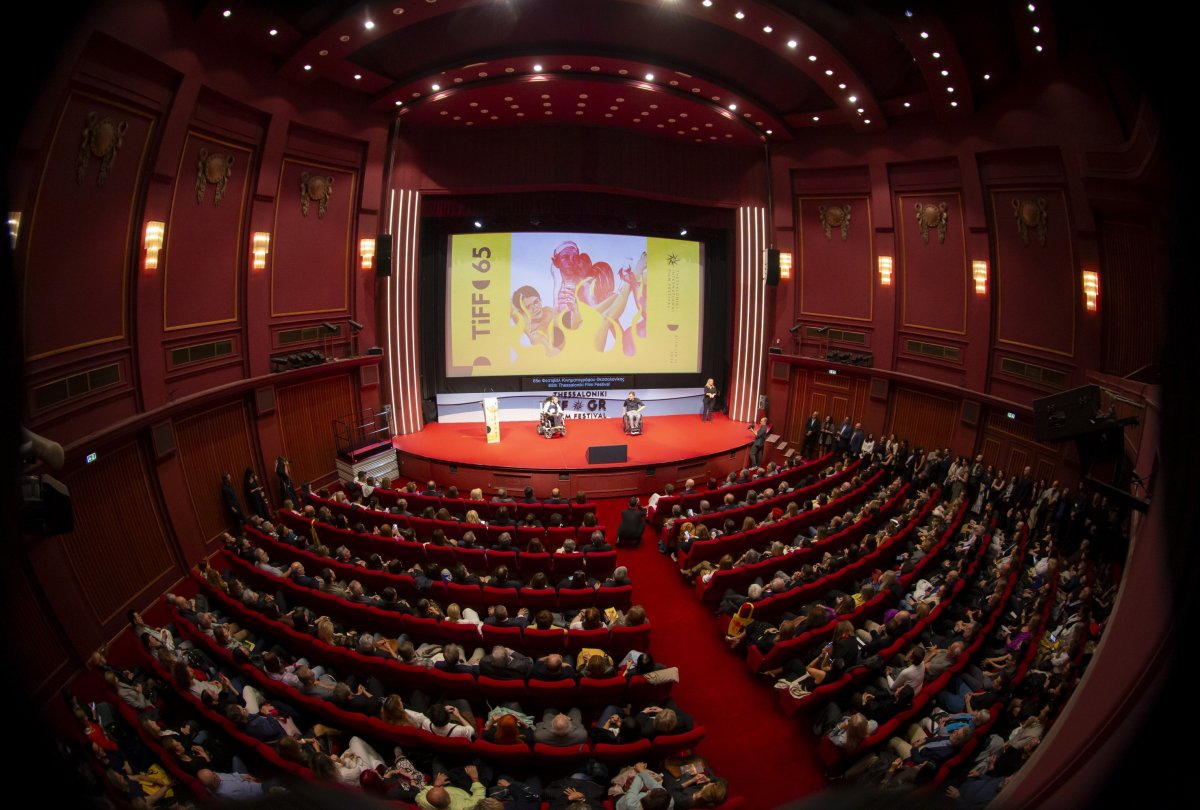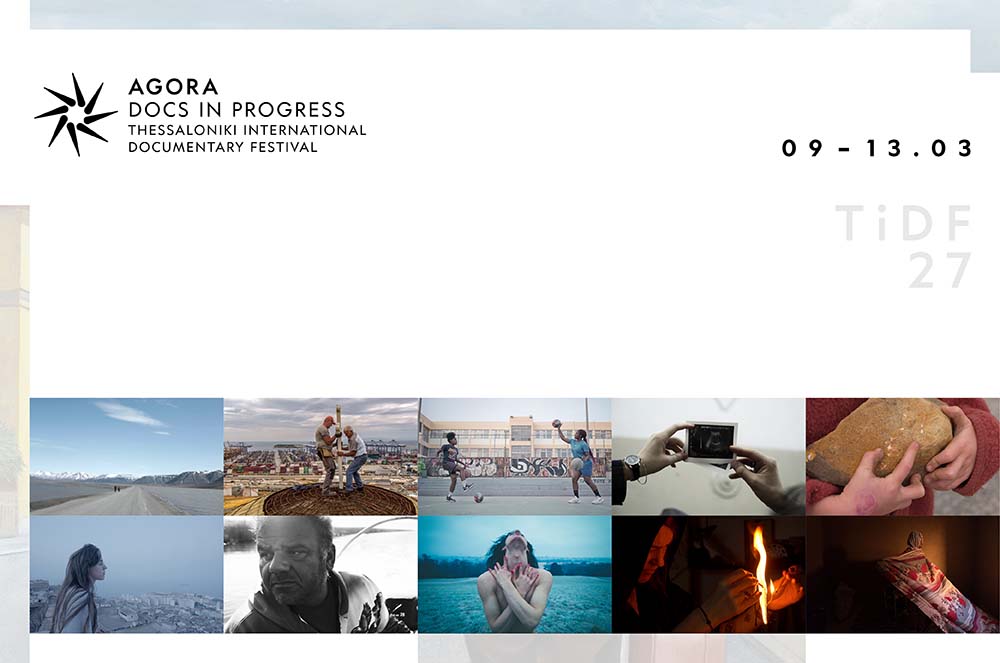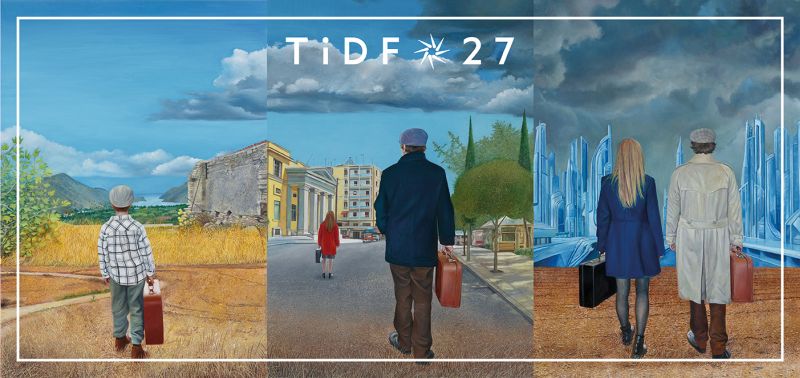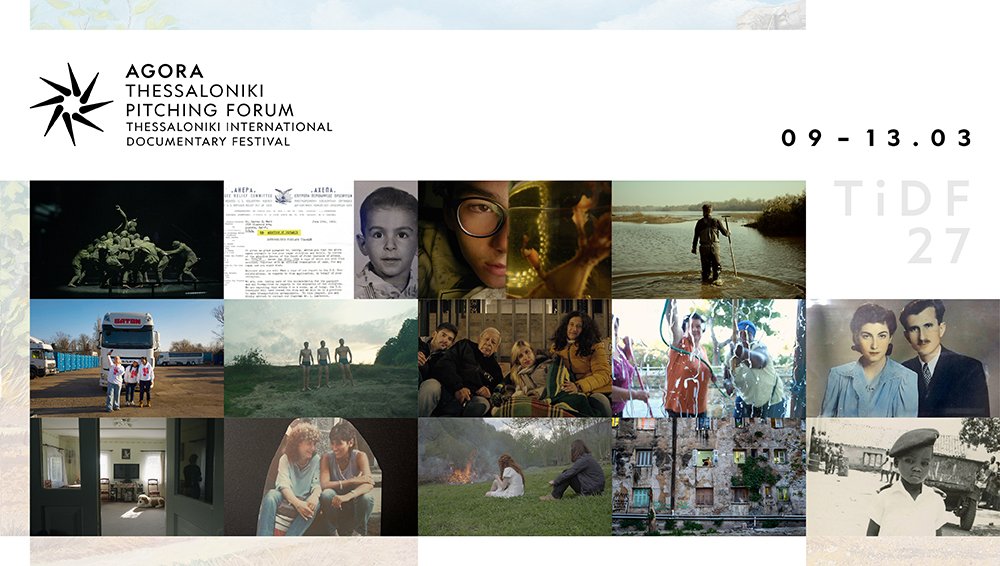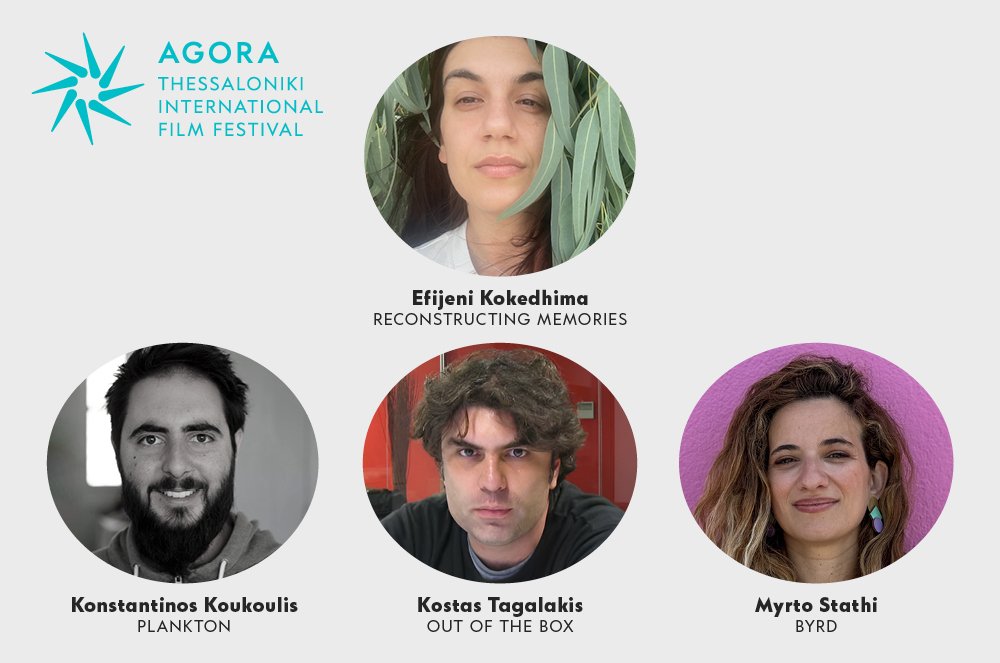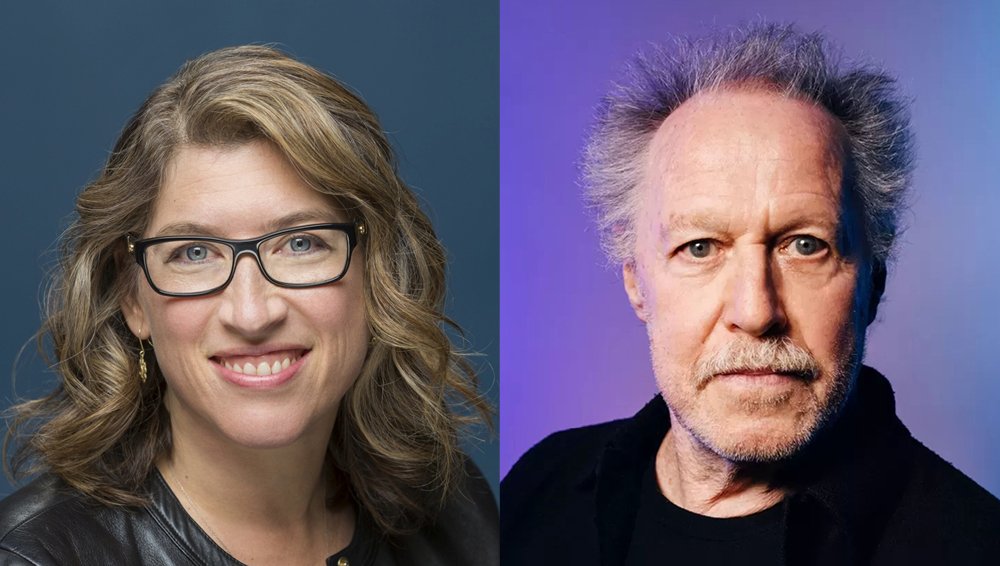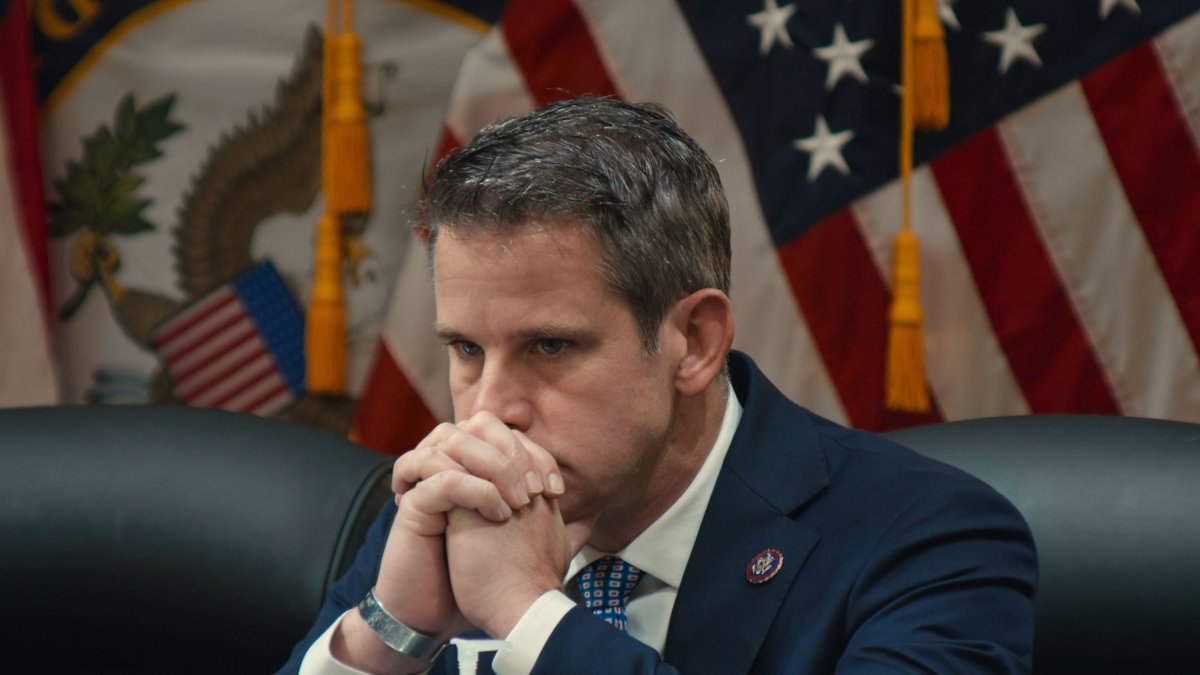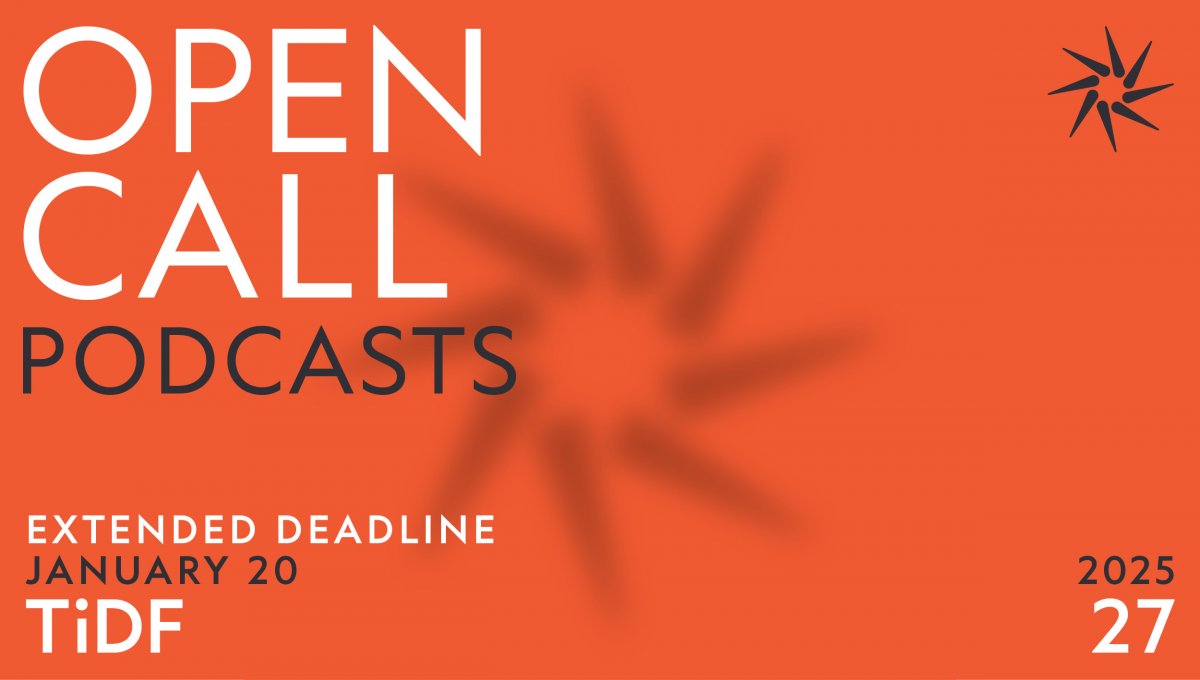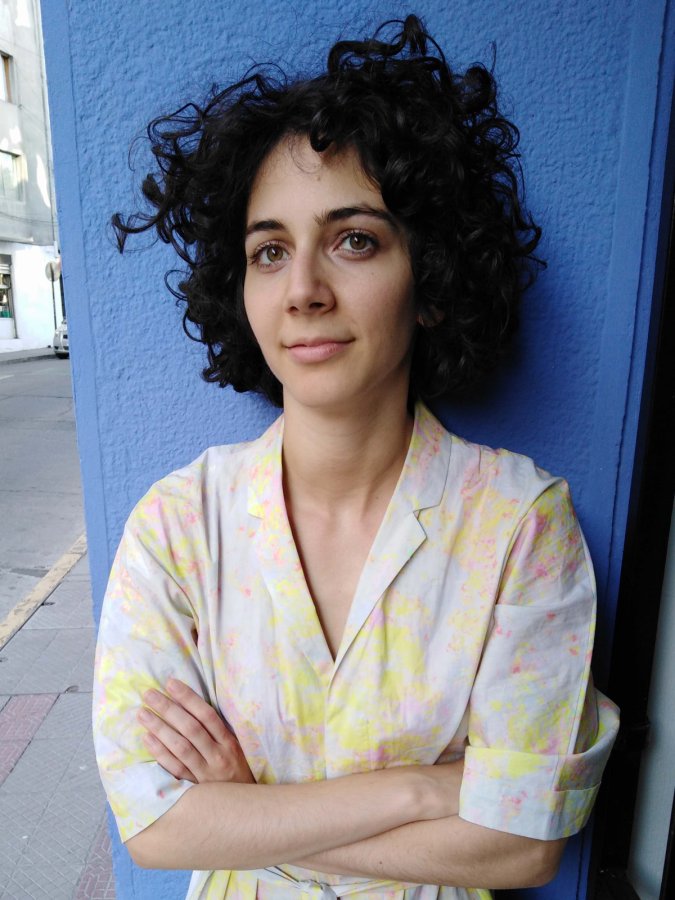Amidst a warm atmosphere, and with a delightful presentation by Cool Crips, Spiros Dadanidis and Grigoris Chrysikos stealing the show, the opening ceremony of the 65th Thessaloniki International Film Festival took place on Thursday, October 31st, in the packed Olympion theater. The event was introduced by the Deputy Minister of Culture, responsible for Contemporary Culture, Iason Fotilas, the Deputy Minister of Interior, responsible for Macedonia and Thrace of Greece, Konstantinos Gkioulekas, the Mayor of Thessaloniki, Stelios Angeloudis , Deputy Regional Governor for Tourism of Central Macedonia, Vicky Hatzivasiliou. On behalf of the Festival, the audience was welcomed by the Festival’s President of the Board of Directors, Eleftheria Thanouli, the Festival’s General Director, Elise Jalladeau, as well as the Festival’s Artistic Director, Orestis Andreadakis.
Orestis Andreadakis welcomed the audience in the newly renovated Olympion theater, introducing the hosts for the opening ceremony. “The hosts for tonight’s ceremony are Spiros Dadanidis and Grigoris Chrysikos, the Cool Crisps. Spiros and Grigoris are two young individuals with disabilities from Komotini and Athens, respectively, and their aim is to make the issue of disability mainstream under their own terms, so as to increase the visibility of disabled people, while adding a dash of coolness, humor and self-deprecating wit to every single action of theirs. The issue of accessibility is crucial for the Thessaloniki Film Festival. Besides the new and, admittedly, very comfortable seats that we recently installed, we also tried to make the entire listed building accessible to all. As the Minister of Culture, Mrs Lina Mendoni, expressed when she visited the theater during the start of the construction works, accessibility is not some type of favor for some of our fellow human beings, but an issue of democracy."
Then, Spiros Dadanidis took the floor, and addressed the issue of accessibility in general, as well as the Festival's efforts towards this direction. “It’s not only a matter of democracy, it is a basic human right. Design that does not exclude, and is done collaboratively is what we are truly hoping for. Equitable participation is reflected by the fact that we are in this position, we are the hosts of the opening ceremony, and we owe this to the fact that the Festival started about 10 years ago, on your own initiative, Orestis, but also through the Disability Arts Movement, making it increasingly inclusive. We are extremely delighted that the Festival is taking steps towards the correct direction. More specifically, the theaters Olympion, Pavlos Zannas, Tonia Marketaki, Frida Liappa, John Cassavetes, Stavros Tornes, and Takis Kanellopoulos are now accessible to disabled people and people with mobility challenges. The Thessaloniki Film Festival, with the support of Alpha Bank, has ensured accessibility conditions at the Festival once again this year. The interventions carried out in a structured environment, along with the organization of two universally accessible screenings with audio description and SDH subtitles, as well as the screening of 23 films with embedded intralinguistic subtitles, aim to provide equal access to cinema for all."
Immediately after, the two hosts talked about their love of cinema, as well as their first memories of cinema, with Grigoris Chrysikos emphasizing the inherently inclusive nature of the art of cinema. “Cinema equals expression, it is creation, it means ‘giving voice to’." Whether we are referring to blockbusters, or independent short films, cinema is an art form that by definition is addressed to everyone, and everything. Therefore, it must offer all those means so as not to exclude any person from enjoying the magic it offers," he pointed out.
Then, the President of the Board of Directors of the Festival, Eleftheria Thanouli, took the stage and touched on the timelessness and the legacy of the Thessaloniki Film Festival. "In 1960, it started as Greek Cinema Week, while in 1992, it officially became international following the initiative of Apostolos Doxiadis and Michel Dimopoulos. In the years that followed, the Thessaloniki Film Festival hosted dozens of stars of world cinema, renowned filmmakers and remarkable actors, while simultaneously highlighting young creators, who took their first steps here in Thessaloniki, only to go on building brilliant careers in the international stage. We are very proud of this course and 65 years may not be a perfectly round anniversary, but for me it is an important milestone and as such I would like to celebrate it here, in the renovated Olympion theater, and I’d like to express my hope that this great institution continues to be enhanced even further in the years to come. The Festival’s staff, some of whom have been working for 20 or 30 years, as well as the agencies of the state that have always been beside us, deserve our thanks and respect. The love of everyone for the cinema, the Festival and the city is what unites us. In conclusion, I would like to say this: when André Bazin went to Cannes for the first time and wished to describe the experience of a film festival, he spoke of a ‘sacred worship of a shared transcendental reality.’ I think the elements of ritual and community are really what one enjoys at our festival as well. Let's enjoy it."
The Festival's General Director, Elise Jalladeau, took the baton, speaking on the role and the mission of the Festival, as well as that of cinema in general. "We thank each and every single one of you who is here tonight, the Ministry of Culture, Minister Lina Mendoni, the Deputy Minister, Iason Fotilas, the Region of Central Macedonia, all public organizations, all our sponsors and supporters. If what is often said is true, that friends are the family we choose, then in a way we are all members of the larger family of the Thessaloniki Film Festival. And this family of our choice is nuclear, having cinema at its core. At this year's festival, among many other things, we wanted to expand the concept of family, to take it out of its narrow conventions. Today, it is more crucial than ever before to reflect on the deeper meaning of what it means to belong to a family. And the way to do so is none other than the contemporary, important, brave cinema of our days. And beyond our own family, not too far away, literally right beside us, the chaos of hate and violence that reigns, highlights the importance of cooperation and understanding. In a time full of conflicts that are causing cracks in our societies, coming together has never been more urgent. The two violent wars that are ravaging our broader neighborhood are a test to our very civilization, deeply offensive to the principles of humanity and compelling us to reflect on the role we each have to play. During these difficult times, cinema reminds us that although art cannot move mountains, the Festival has the power to unite people - and that in itself is a small miracle."
At that point, the spots of this year's event were presented, for which the Festival had commissioned two young and emerging creators. Nikos Kolioukos, winner of the Cannes Film Festival's Student Competition Section, directed the first spot, which draws inspiration from this year's central tribute, called "We, the Monster", curated by Carlo Chatrian. Meni Tsilianidou, winner of the Drama Short Film Festival’s Student Competition, signed the second spot, which is inspired by the “Un-Family-ar” tribute of the Survey Expanded section of the 65th TIFF.
The Deputy Regional Governor for Tourism, Vicky Hatzivasiliou, was the next to take the stage, making a special reference to the bridge linking cinema and tourism. "Today, we are celebrating 65 years of the brilliant and ascending progress of the Thessaloniki Film Festival. A historic institution that has highlighted and promoted Central Macedonia internationally as the core of culture and artistic creation in Greece. The Thessaloniki Film Festival invites us to explore its fascinating world, where stories come to life and visionaries of cinema share their creations with the audience. The Festival is not simply a celebration of the 7th art. It is also a unique meeting platform for young and acclaimed filmmakers from Greece and the world. Every year, the Festival brings together a talented community of people with a passion for art from all over the world, providing conditions that encourage collaboration and creativity. Culture inspires us, unites us, fills us with light and optimism. It is our identity, the expression of our creativity and a reflection of who we are as a society. In the Region of Central Macedonia, cultural development is a priority in our work, as we aim to make our region a capital of extroversion and innovation. Within the framework of this strategy, Thessaloniki Film Festival plays a pivotal role, not only as a cultural institution but also as a catalyst for the tourism and economic development of our region," she initially emphasized.
“The connection between cinema and tourism is, for us, incredibly important. Cinema has the power to transform regions into destinations. Through films, viewers have the opportunity to discover the history and beauty of a location. Cinematic visuals bring the streets, squares and monuments to life, thus attracting visitors from every part of the world. Investing in culture is investing in tourism. We support the Thessaloniki Film Festival because we believe in the necessity of promoting Central Macedonia as a competitive tourist and film destination, as well as an ideal place to accommodate and host cultural events of international scope. This year, we welcome once again the distinguished guests and friends of the Festival in Thessaloniki, inviting them to enjoy the rich program of screenings and parallel activities organized, with active participation from the Central Macedonia Region and the Film Office. We encourage you to discover the beautiful experiences offered by the ten-day film festival that follows. Participate in the discussions, actions and events, watch films that will move you and provide you with food for thought. We wish everyone a successful festival filled with inspiration and creativity. Let us celebrate cinema, our culture, and the amazing Thessaloniki together.”
The evening's hosts then referred to the Agora, the development initiative of the Thessaloniki Film Festival, which brings to the forefront the creators of tomorrow. The renowned and beloved British writer Victoria Hislop, this year's Agora ambassador, addressed the audience of the Festival through a short video, speaking about her role in this year's event as the ambassador of Agora.
The Mayor of Thessaloniki, Stelios Angeloudis, took the floor, and praised the importance of the Festival for the city of Thessaloniki. "Thessaloniki welcomes you to the grand celebration of the most beautiful deception in the world, as the late Jean-Luc Godard described cinema. The 65th Thessaloniki International Film Festival, the country's largest film institution, opens its doors once again this year, renewed and more dynamic than ever, and welcomes renowned film stars. It honors the institution with 252 screenings of feature and short films, tributes and awards, relying on the pillars of innovation, extroversion, inclusion and quality, as always. This small miracle that is performed every year, and which puts Thessaloniki at the forefront of European festivals, could not be achieved without the passion and vision of all the contributors and volunteers, who give a part of themselves to offer the audience this unique journey into the magical world and the allure of the cinema theater.
So we stand with awe and attentiveness before the power of art, an art that, as has been aptly said, shows us the light when the darkness overwhelms us. It leads us to explore worlds unknown, it evokes a plethora of emotions. From the bottom of my heart, I want to thank you for this unparalleled and collective experience that you offer us. On one hand, you provide a platform to the vibrant film community of our country, and on the other, you highlight exceptional creations from the international scene. It is our duty to amplify the voice of the people of the Festival. To expand its horizons. To enhance its competitiveness. To build together the next, even more optimistic, day.”
This year the Festival honors Panos H. Koutras, one of the most daring, unconventional, and pioneering filmmakers of contemporary Greek cinema, through the tribute titled The Real Cinema of Panos H. Koutras. The audience had the opportunity to enjoy a clip featuring selected and iconic moments of his filmography.
The Deputy Minister of the Interior, sector of Macedonia and Thrace, Konstantinos Gioulekas, took the stage immediately after, reflecting on the rich artistic and cultural heritage of Thessaloniki. "Congratulations for this very innovative idea, for choosing these two talented young people to present the opening ceremony. The Festival, despite its 65 years, has remained youthful. I too remember my first contact with cinema. It was at the theaters showing two Greek films, where my mother would take me every Saturday afternoon when we didn’t have school. We also went to the Society for Macedonian Studies, where the festival was held at the time. We would sit in the upper floor balcony and wait to see the movie stars. Thessaloniki deserves to host the Festival because it is a city where cultures, peoples, religions and continents have converged. Therefore, this year, the Festival will serve as a meeting point for young creators from both Greece and abroad."
As Mr Gioulekas went on to say, "this city has always maintained a pioneering character. This is where radio was born. The first signal in the Hertzian waves in all the Balkans was broadcast from Thessaloniki. This was also the case with television. The country's largest film festival was born here, and for decades Thessaloniki also hosted the Music Festival. We hope - because unfortunately some institutions have been lost along the way - that the Festival will not only continue to flourish, but that it will grow. So, happy anniversary to the Film Festival - 65 years old but nevertheless still thriving and fresh."
The speakers at the opening ceremony were rounded up by the Deputy Minister of Culture, responsible for Contemporary Culture, Iason Fotilas, who referred to both the power of cinema and the supporting mechanisms of domestic film production. "I am honored to participate in the launch of one of the most important cultural institutions of the country, and even represent the Ministry of Culture and Minister Lina Mendoni, who consistently support the Festival. The institution is being constantly nourished with new ideas, with a clear vision and open hearts. These are the special qualities that we need today, more than ever. Today, as filmmaking is at a critical juncture between the theater, which has been tested in recent years, and the multi-layered challenges posed by technology. This dystopia has been astonishingly captured and foreshadowed by cinema for decades. At the same time, films have recorded the reactions against apathy, which is not a foregone conclusion in today's society," he initially noted.
“Many times, indifference first becomes apathy, and then submission to mediocrity. Perhaps because the monster of this year's tribute has already created within us conditions for inertia and paralysis to take root. I wonder if the contemporary spectator can bear to look in the mirror, or are they afraid of the monster? Nowadays, when much of the drive and challenge is lacking from a weary audience, perhaps the balcony of the 1980s would have been a solution to more passive viewers. Perhaps we all need a strong wake-up call to shake us from the complacency of taking our values and freedoms for granted. We need to be reminded again of the power of creative subversion, and this year's festival can be a promising starting point. It's not just the films, it's the exhibitions, publications and music, the unique moments of creativity and dialogue. Ultimately, this is the most important achievement of the Festival. The fact that it is keeping a much-needed creative debate going," Mr Fotilas added.
"The Ministry of Culture under the leadership of Lina Mendoni, as well as the government of Kyriakos Mitsotakis as a whole, places cinema, audiovisual and creative cultural industries in high priority. This is evidenced by the dozens of targeted programmes established in previous years and which are still running today.The funding programmes operate in a direct and transparent manner. The Hellenic Film Centre is fully operational as a new film and audiovisual media institution, and comes as a result of the merger of the Hellenic Film Centre and EKOME. We are thus creating a single body with new possibilities, contemporary policies and a wider scope of action. An entity that is infused with extroversion and characterized by broadened horizons. And, most importantly, a stakeholder equipped with our commitment to create a single and clear framework for cinema and the audiovisual sector, contributing to social cohesion and economic development. I would like to thank everyone who worked on this year's edition. In a moment, Pablo Larraín's Maria will journey into our hearts, demonstrating that the path of art is a difficult, uphill and arduous one. However, for creative people there is no other choice," Mr Fotilas added, concluding his statement.
The opening ceremony was wrapped up by the artistic director of the Festival, Orestis Andreadakis, who proceeded to present Pablo Larraín's Maria, the opening film of the 65th Festival. "The film you are about to see starts on September 16th, 1977. The day Maria Callas falls silent, but leaves behind a voice that we will hear for all time. Maria follows her during the last days of her life, but gradually unravels her entire tumultuous story. Chilean filmmaker Pablo Larraín specializes in capturing the greater truth behind the true stories of remarkable individuals. In fact, Maria is the conclusion of an unofficial trilogy that began with the biography of Jackie Kennedy-Onassis in the film Jackie and continued with the biography of Princess Diana in Spencer. Certain parts of the film were shot in Greece by Heretic and Giorgos Karnavas. Minor roles are played by Lydia Koniordou and Aggelina Papadopoulou, who are with us today. The film will be released in Greece, exclusively in cinemas, by Cinobo and Faliro House, to whom we would like to express our profound gratitude," said Mr. Andreadakis, calling it a wrap for the opening ceremony.


